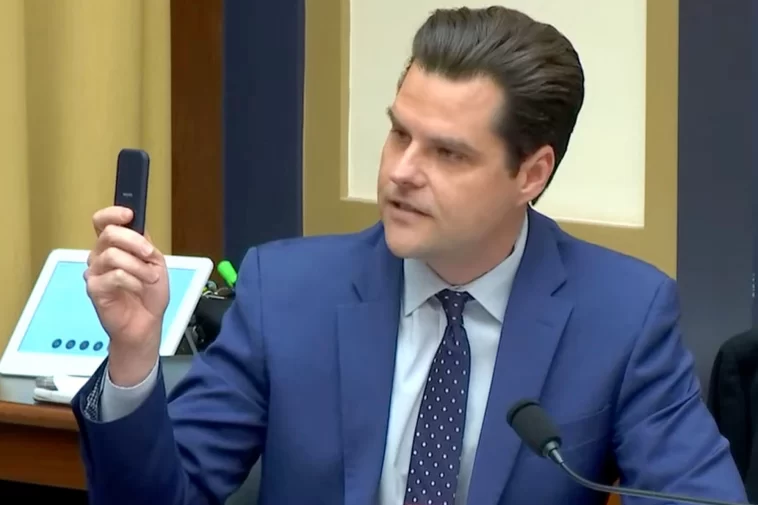Former Congressman Matt Gaetz has announced his withdrawal from consideration for the role of U.S. Attorney General in President-elect Donald Trump’s administration. The decision comes amidst significant resistance from Senate Republicans and concerns over the confirmation process. In a statement, Gaetz explained that his nomination had become a distraction to the Trump-Vance transition team and emphasized the importance of a fully operational Department of Justice from day one.
Challenges in the Nomination Process
Gaetz, a staunch ally of Trump and a polarizing figure in Congress, faced uphill battles in his bid for the Attorney General position. His nomination drew scrutiny from members of both parties due to his controversial history and unresolved ethical investigations. Although no charges have been brought against him following allegations of misconduct, these issues raised doubts about his ability to secure the trust and support necessary for confirmation.
Key Senate Republicans had voiced reservations about backing Gaetz, with some publicly stating their concerns about his suitability for the role. Behind closed doors, lawmakers expressed fears that his confirmation hearings would devolve into a contentious and partisan spectacle, potentially undermining confidence in the Justice Department at a time when the agency is already under intense public scrutiny.
Gaetz’s Statement on His Withdrawal
In his withdrawal announcement, Gaetz reiterated his support for the incoming administration and the president-elect’s vision for the Department of Justice. “While I am honored to have been considered for this role, I believe it is in the best interest of the administration and the country to allow the focus to remain on uniting the team to deliver results for the American people,” Gaetz said.
He emphasized his commitment to advancing the priorities of the Trump administration in other ways and thanked his supporters for their encouragement throughout the process.
I had excellent meetings with Senators yesterday. I appreciate their thoughtful feedback – and the incredible support of so many. While the momentum was strong, it is clear that my confirmation was unfairly becoming a distraction to the critical work of the Trump/Vance…
— Matt Gaetz (@mattgaetz) November 21, 2024
The Road Ahead for the Trump Administration
Gaetz’s withdrawal underscores the challenges the Trump administration faces in filling key cabinet positions, particularly those requiring Senate confirmation. The Attorney General role is especially critical, given the DOJ’s central role in addressing pressing issues such as immigration enforcement, election integrity, and crime reduction. The administration will now need to pivot quickly to identify a new nominee who can garner bipartisan support and navigate the confirmation process successfully.
Potential candidates are expected to be individuals with significant legal experience and fewer controversies to mitigate resistance from the Senate. The Trump transition team has not yet announced a replacement candidate but is expected to prioritize individuals who can restore confidence in the department and align with the administration’s law-and-order agenda.
Broader Implications of the Withdrawal
The withdrawal has reignited discussions about the balance of power between the executive and legislative branches, particularly the Senate’s critical role in vetting and approving presidential nominees. While Gaetz remains a popular figure among certain conservative circles, his nomination highlighted the importance of selecting candidates who can bridge divides and withstand rigorous scrutiny.
For Gaetz, the decision to step aside marks the end of what could have been one of the most high-profile roles of his career. Despite this setback, he is expected to remain an influential figure within Republican politics, leveraging his strong ties to Trump and his base of supporters.
A Complex Transition Period
The withdrawal comes at a time of heightened political polarization, adding to the challenges of assembling a cohesive cabinet for the new administration. As Trump’s team works to finalize its leadership roster, the focus will remain on securing individuals who can navigate both policy priorities and the increasingly contentious confirmation process.
The decision reflects the complexities of modern political appointments, where past controversies and partisan divides can overshadow qualifications and delay progress in forming a functioning government. The Trump administration will need to move swiftly to fill the Attorney General position while managing expectations and maintaining momentum for its broader policy agenda.


